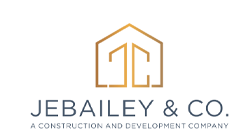When it comes to commercial construction projects, budgeting is a crucial step that can make or break the success of the endeavor. It’s all about planning ahead and setting the financial groundwork to ensure a smooth and cost-effective construction process. Let’s dive into the key aspects of budgeting for commercial construction.
Importance of Budgeting
Budgeting is like having a financial compass for your construction project. It helps you ensure that you have enough resources and avoid unexpected surprises along the way. By setting a clear budget from the start, you can align your financial goals with the project scope and design, making sure everything is feasible and within reach.
One of the main reasons budgeting is important is to ensure financial viability. You don’t want to end up starting a project only to realize halfway through that you don’t have enough funds to complete it. Budgeting allows you to evaluate the costs involved and make informed decisions about proceeding with the project.
Additionally, budgeting helps you avoid cost overruns and delays. By estimating costs accurately and identifying potential risks, you can proactively manage them and keep the project on track. Regularly monitoring expenses against the budget allows you to spot any deviations and take corrective actions before they escalate into bigger problems.
Preparing a Construction Budget
Preparing a construction budget involves a series of steps that lay the groundwork for effective cost management throughout the project. It starts with defining the project scope and design considerations. Understanding what you want to achieve and the design elements involved helps you estimate costs more accurately and allocate your budget accordingly.
Cost estimation methods and techniques come into play when determining the expenses involved. You can rely on historical data, industry benchmarks, or even detailed take-offs to estimate costs as accurately as possible. Breaking down costs into categories, such as materials, labor, and equipment, helps you organize the budget effectively and track expenses more efficiently.
Elements of a Commercial Construction Budget
A well-structured commercial construction budget comprises different elements that capture the essential costs involved in the project. Materials and supplies, for example, need to be accounted for. This includes everything from concrete and steel to fixtures and fittings. Accurately estimating material costs helps you avoid shortages and unexpected price fluctuations.
Labor costs are another critical component. You need to consider wages, benefits, and other related expenses for the construction workforce. Estimating labor costs involves factors like the number of workers, their skill levels, and the project duration. Proper planning ensures you allocate the right resources while keeping labor costs in check.
Equipment and machinery costs also need to be factored in. If your project requires specialized equipment, you need to consider rental or purchase costs, maintenance expenses, and even fuel and operator expenses. Estimating equipment costs accurately ensures that you have the necessary tools without blowing your budget.
Estimating Construction Costs
Accurate cost estimation is a key aspect of budgeting for commercial construction projects. You need to break down costs into different categories and estimate them diligently. For material costs, you have to determine the quantity, quality, and price of the materials needed. Labor cost estimation involves assessing workforce requirements and associated expenses. Equipment cost estimation, on the other hand, requires evaluating rental or purchase costs, maintenance, and other related expenses.
Additional Budget Considerations
Preparing a construction budget goes beyond materials, labor, and equipment. There are additional factors to consider. For instance, you need to account for permits, inspections, and regulatory expenses. Obtaining the necessary permits and complying with regulations incurs costs that should be factored into the budget.
Contingency planning and risk management are also essential. Allocating a contingency budget helps you handle unforeseen events or changes that may arise during the project. Anticipating potential risks, such as design modifications or material price fluctuations, allows you to be prepared and avoid unexpected financial burdens.
Financing options and capital budgeting should also be taken into account. Evaluating different funding sources and understanding their impact on the budget helps you make informed financial decisions. Aligning your budget with your chosen financing approach ensures stability and financial control throughout the project.
Contractor Selection and Budget Alignment
Choosing the right contractor is crucial for effective budget management. Evaluating contractor proposals based not only on price but also on their ability to adhere to the budget is important. Reviewing their proposed budgets, cost breakdowns, and past project performance gives you confidence in their alignment with your budget goals.
During contract negotiations, it’s essential to clearly communicate your project budget and expectations. Negotiating contract terms that reflect cost control measures and budget reporting ensures that everyone is on the same page. Regularly monitoring contractor performance and communicating openly helps you ensure that the project stays within budget.
Budgeting for commercial construction projects requires careful consideration and accurate cost estimation. It’s a crucial process that sets the financial foundation for a successful project. By recognizing the importance of budgeting, following a systematic approach, and considering additional factors, you can effectively manage project finances, reduce the risk of cost overruns, and ensure successful project completion within your allocated resources.




